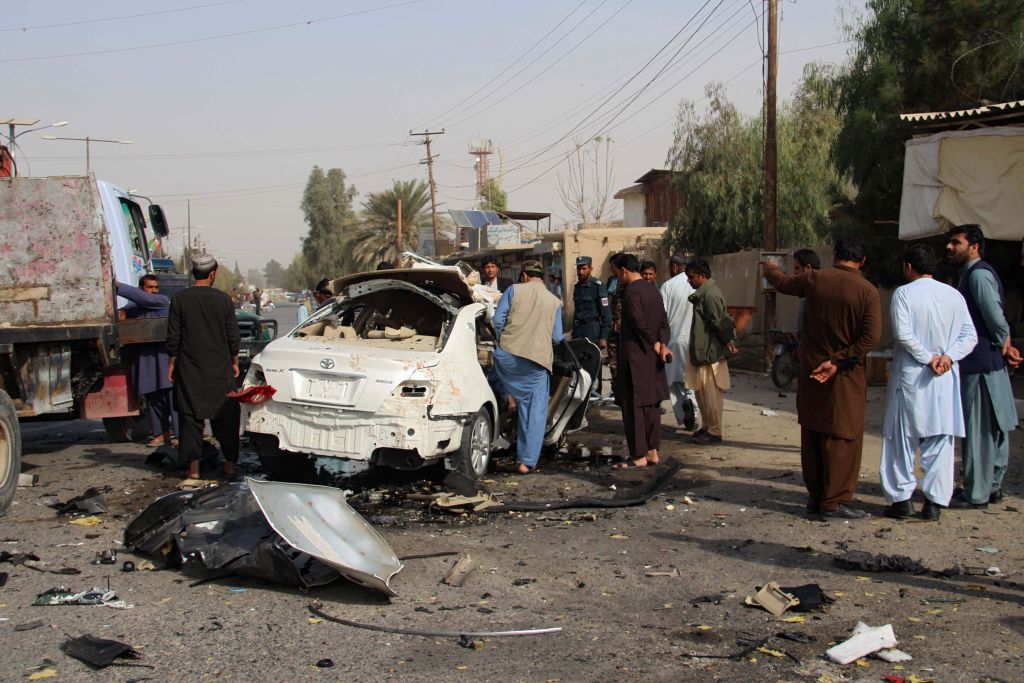As America Leaves Afghanistan, Concern Spreads Over Fate of Local Journalists
Interpreters, translators who worked with the US military getting visas, but Afghans who associated themselves with American news outlets and fear Taliban retribution are not eligible
US President Joe Biden announced earlier this month that US forces would complete their withdrawal from Afghanistan by August 31.
“We’re also going to continue to make sure that we take on the Afghan nationals who work side-by-side with US forces, including interpreters and translators,” so that “their families are not exposed to danger,” Biden said at the July 8 news conference.
Special Immigrant Visas (SIVs) to enable Afghan nationals who cooperated with American forces to become US lawful permanent residents were being issued, with 2,500 already approved, the president said.
Twelve days later, a “coalition of US news organizations” sent a letter to Biden and Secretary of State Antony Blinken, charging that their government had not done enough to ensure the safety of its Afghan allies.
“We write today to seek the US government’s humanitarian assistance for those Afghans who have worked with the US media as journalists, interpreters and support staff and now fear retaliation from the Taliban for having courageously associated themselves with the American press,” they wrote.
More specifically, the letter argued that the Special Immigrant Visa program did not include those Afghans who had associated themselves with American news outlets. Yet, as the missive made clear, “The Taliban has long conducted a campaign of threatening and killing journalists.”
The UN Assistance Mission in Afghanistan reported on February 15 that “65 journalists, media professionals and human rights defenders were killed in Afghanistan between 1 January 2018 and 31 January 2021, with 11 losing their lives since the start of peace negotiations last September.”
The most recent murder of a journalist came on July 15, when Danish Siddiqui, a Pulitzer Prize-winning Reuters photographer, was shot dead while covering a battle between Taliban and Afghan security forces near a border crossing with Pakistan.
The letter, which estimated that fewer than a thousand people remaining in Afghanistan were at risk of Taliban reprisal for “collaborating” with the American press, was signed by 21 news organizations and four groups focused on the protection and freedom of expression of journalists. Among the signatories were ABC News, CNN, Fox News and the Washington Post.
The New York-based Committee to Protect Journalists, which describes itself as an independent, nonprofit organization that promotes press freedom worldwide, also signed the letter.
“What we are seeking, as are US news organizations that operate in Afghanistan, is for the US government to provide humanitarian assistance and emergency visas to Afghans who have worked with US media outlets,” the committee told The Media Line on Sunday.
“This may be achieved by including Afghan journalists and their families in the existing Special Immigrant Visa program, or by creating a new visa category for at-risk journalists,” the committee continued.
“We have not yet received a formal response to our joint letter, but we know that the administration is concerned and are hopeful that the response will be positive,” it said.
Operation Allies Refuge is already underway, with the express purpose of relocating “military interpreters, fixers etc.” to the US, the committee explained to The Media Line.
The American Embassy in Kabul acknowledged in a statement that “these relocation operations will allow the United States to fulfill its commitment to those who have served our country here at great personal risk.”
It is important to note that the risks facing journalists are multiple, stemming not only from the advance of the Taliban but from a broad range of nefarious groups that make up the fabric of power in varying parts of the country
The Committee to Protect Journalists implored: “At-risk journalists must not be left behind.”
The committee is working hard to support individual journalists who may be in danger, it said.
“Similarly, we are coordinating with a host of press freedom and journalist groups and media companies both within and outside of Afghanistan to ensure we have a coordinated approach and can be successful in ensuring safe haven for those Afghanistan journalists needing it as well as facilitating temporary or permanent relocation for those whose situation requires it,” according to the committee.
“It is important to note that the risks facing journalists are multiple, stemming not only from the advance of the Taliban but from a broad range of nefarious groups that make up the fabric of power in varying parts of the country,” the committee said.
Aron Rosenthal is a student at the University of Edinburgh and an intern in The Media Line’s Press and Policy Student Program.


